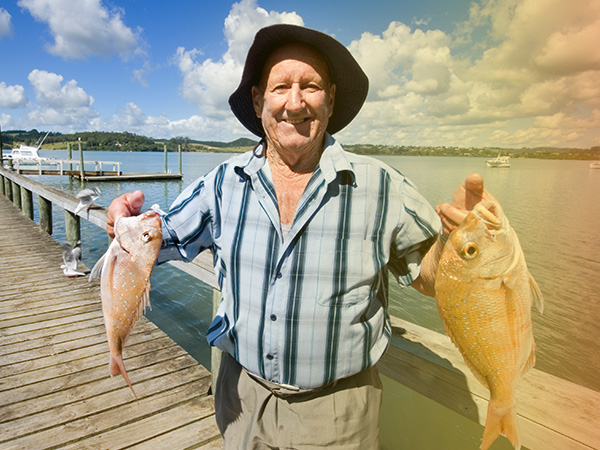Your browser version is no longer supported, so you may experience issues while using this site.
Please upgrade to a current browser to enjoy the best experience.
Good things growing: kindy kids, seedlings and kindness!
6 June 2019
Planting and taking care of seedlings is a wonderful way for kids to learn about nature – and it’s fun too!
We’ve been working with kindergartens in Whangarei, Napier, South Canterbury and Dunedin to help children get good things growing by donating seedlings for late autumn planting.
We’ve loved hearing the stories of the different planting plans each kindergarten has come up with and how they’ve worked with the children at their centres!
Native seedlings to attract birds – Manaia View Kindergarten, Whangarei
Native plants to attract birds were top of Manaia View Kindergarten’s planting list. Over the last few months the centre has been gradually developing its outdoor area. After tackling a drainage project to stop flooding, it was time to plant.
Head teacher Katherine Belz explains: “it was important to us that the plants we put into this area were low maintenance and non-invasive. We knew native plants were the way to go – and we wanted to attract birds. It’s great for the children to be able to play outside and see the relationship between plants and birds.”
We donated native plants corokia ‘geenty’s ghost’, hebe ‘inspiration’ and phormium ‘emerald gem’. Planting was a real community effort. Kids at the centre helped and students from local high school Pompallier College lent a hand too, clearing the ground and helping to dig in the plants.
Abbotsford Kindy students sign a heart
Winter vegetables and sensational rosemary – Onekawa Kindergarten, Napier
When the Napier Kindergarten Association put us in touch with Onekawa Kindergarten, the kindergarten had just added compost to its vegetable gardens and was thinking about planting. Onekawa Kindergarten uses Matariki as a planting guide so winter vegetables were on the menu!
Children and teachers at the kindergarten worked together to plant the vegetable seedlings, including silver beet, broccoli and cauliflower. Growing vegetables is a great way for children to begin to learn about planting, harvesting and preparing food as well as sustainability.
Onekawa kindergarten also has a sensory garden – and a new rosemary plant for this area was an additional part of their planting plan. The sensory garden is an area dedicated to plants that the children can smell, taste and touch and helps the children learn about their senses in a complete and practical way – by using them!
Manaia View Kindy students plant vegetables
Growing kindness – Abbotsford Kindergarten, Dunedin
At Abbotsford Kindergarten in Dunedin, a large banked area needed replanting. The plants there had been cleared because they’d become overgrown and obscured the teachers’ view of the fence line – and were sharp and dangerous for the children when cut back.
Head teacher Marie Thomson explains: “we needed to come up with a plan to landscape. This kind grant of plants has enabled us to make something beautiful out of a rough unloved piece of playground. It also gave us a chance to talk to the children about acts of kindness. The type of unexpected kindness when something good happens that you haven’t anticipated.”
Abbotsford Kindergarten really values kindness. Marie says: “our favourite whakataukī that we teach the children is He aroha whakatō, he aroha puta mai – if kindness is sown, then kindness you shall receive.”
Onekawa Kindy planting
Enviroschools and edible gardens – South Canterbury Kindergartens
Planting and caring for plants can be a great way to teach children about sustainability. In South Canterbury, the regional kindergarten association is an Enviroschools association. All 12 of its kindergartens are focused on teaching and supporting children to think and act sustainably.
“Our centres are growing edible gardens with their children,” says Angela O’Connor, Senior Teacher for South Canterbury Kindergartens. “We’re using this donation to choose native seedlings and fruit trees to plant with the children at a couple of our centres. It’s wonderful for children to learn that they can plant and grow their own food – and fruit is a firm favourite, they’ll have lots of fun eating their produce!”
The information in this article has been compiled from various sources and is intended to be factual information only. Full details of policy terms and conditions are available from Asteron Life Limited or your financial adviser. For advice on product suitability, please contact your financial adviser. While we take reasonable steps to ensure that the information contained in this article is accurate and up-to-date, it is subject to change without notice. Asteron Life Limited and its related companies does/do not accept any responsibility or liability in connection with your use of or reliance on this article.
Keep reading

Insurance
What is Life Insurance?
You can't predict the future, but you can help protect yourself against it. Life Insurance can provide a lump sum of money if you die or become terminally ill. It is designed to help your family pay costs that you would have helped with if you were still alive.
Find out more

